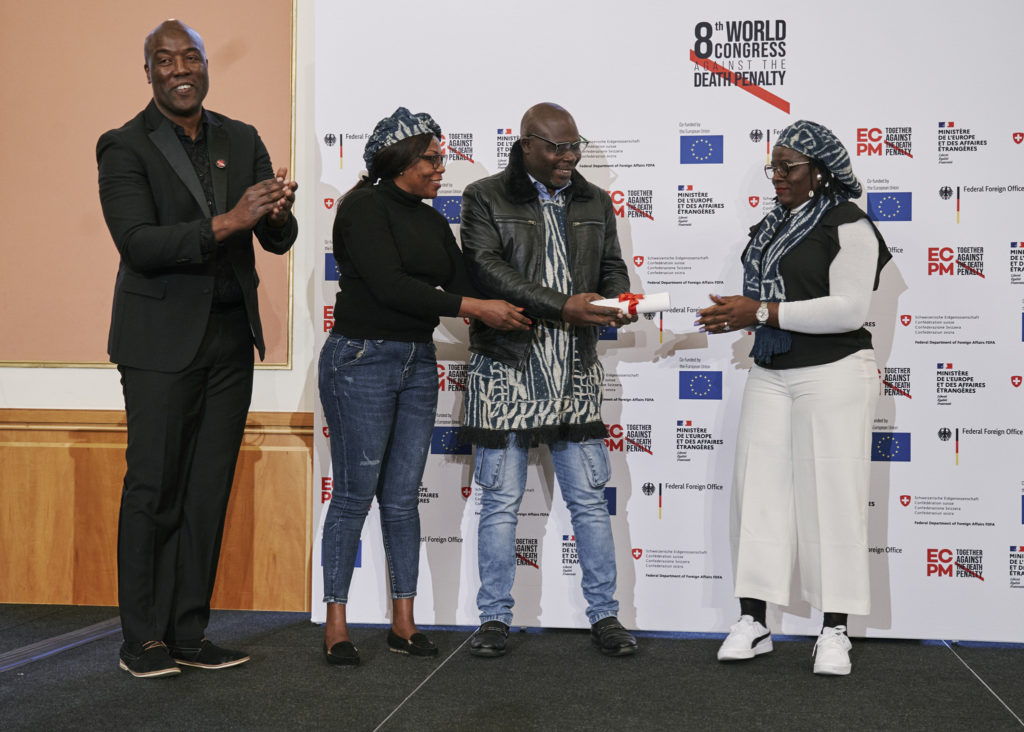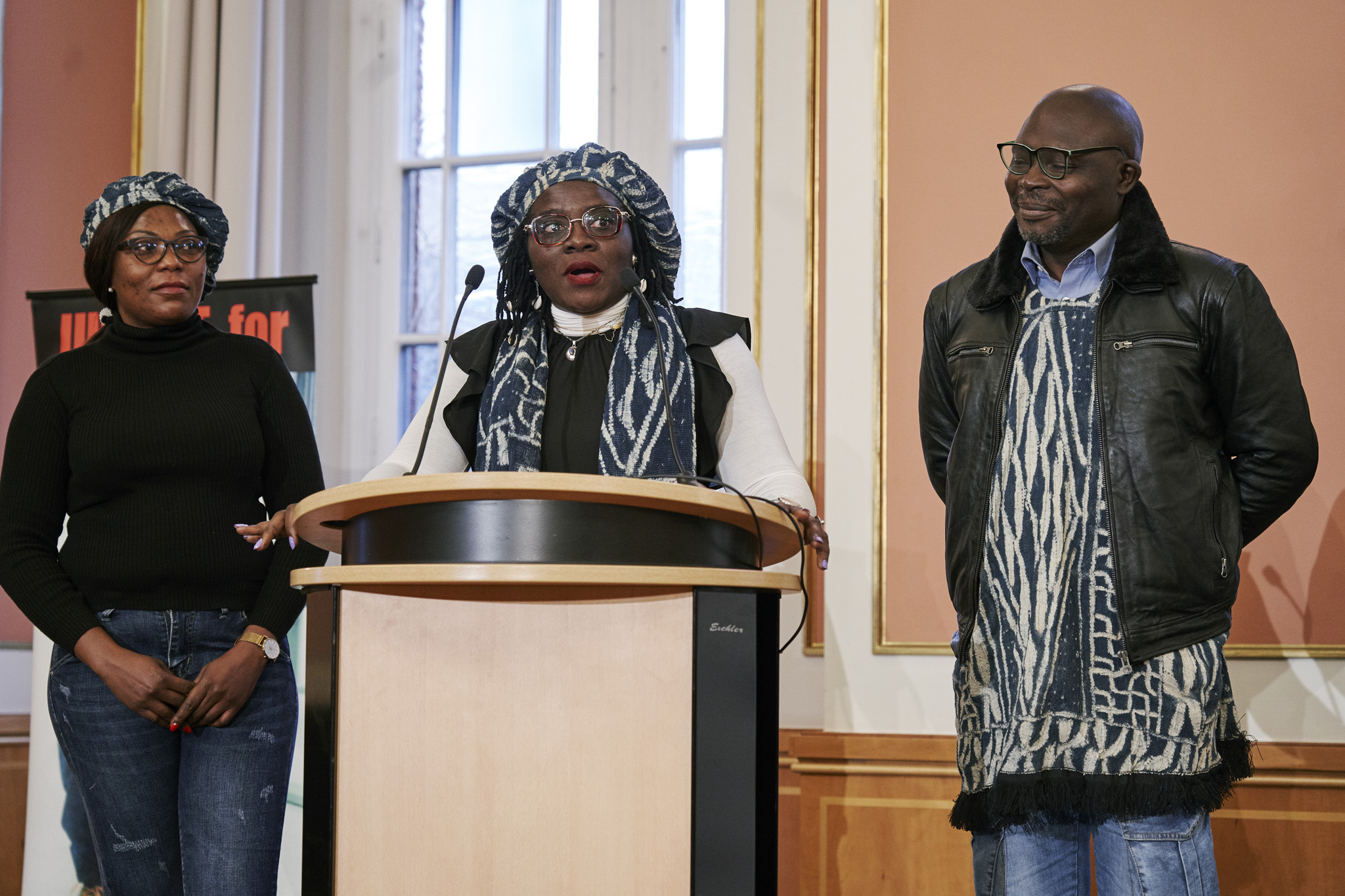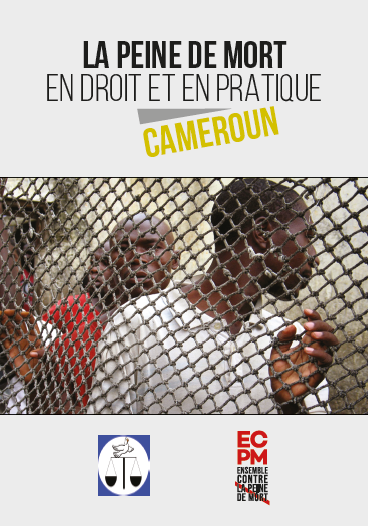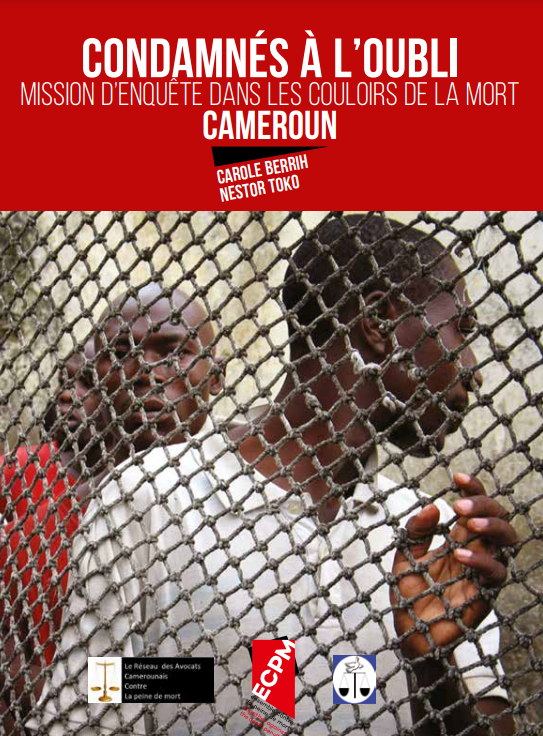
Could you tell us about the thinking and events that led to the creation of the Network of Cameroonian Lawyers Against the Death Penalty?
RACOPEM was set up in 2015 in a context marked by a lack of involvement of Cameroonian lawyers in opposing the death penalty. Paradoxically, at the time, Cameroon had one of the highest death sentence rates in Francophone Africa. Our dream at the time was to train a generation of lawyers specialised in representing those facing the death penalty and capable of advocating for abolition in the public arena. With this in mind, and despite the reluctance of our professional association, a former President of the Bar agreed to join us.
As a first step, we raised awareness about the abolitionist cause among a number of interested lawyers and organised visits to several of the country’s prisons as part of a study into the conditions of detention of those facing the death penalty. After these visits, we realised that death row prisoners faced many challenges in prison and that their sentences were often not based on irrefutable evidence. That was why we decided to provide legal assistance to those on death row who had exercised their right to appeal.
In our struggle against the death penalty, we considered it useful and strategic to strengthen the capacities of judicial actors (lawyers, judges and the prison administration) in relation to international standards on the death penalty. With the support of ECPM, specific capacity-building courses for lawyers were organised. These efforts yielded some unexpected results: the number of death sentences fell considerably, from 330 in 2018 to 120 in 2020, according to official government figures.
How important is the World Congress for your work as a lawyer and for RACOPEM?
The World Congress Against the Death Penalty is a rare opportunity to bring together abolitionists, including the legal professionals who, at local, regional and international level, work daily to eliminate the death penalty from judicial and legislative arsenals. This major triennial gathering has given us the opportunity to meet legal practitioners from every continent and share with them the challenges we encounter every day in representing those facing the death penalty, as well as strategies to overcome them.
Building on the relationships developed at the World Congress, we work with a number of organisations and bar associations that provide legal assistance to people on death row. For example, we have benefited from the legal expertise of the Debevoise law firm in New York and the Cornell Center on the Death Penalty Worldwide in the United States in several cases involving death row prisoners in Cameroon. Thanks to their strategic advice, we have been successful in all the death penalty cases in which we have provided representation.
During this major meeting of abolitionists, we also developed collaborations that are essential for the submission of individual cases of our clients on death row to the treaty bodies.
What are the consequences of the award you received at the World Congress for RACOPEM’s work?
We welcomed this award as international recognition of our contribution to the abolition of the death penalty in our country, which is still under a de facto moratorium. Our commitment to the fight against the death penalty is therefore boundless, despite the challenges we have faced in the past. Encouraged by this recognition, several lawyers have joined RACOPEM and now contribute with us to the fight against the death penalty in Cameroon.
The award has also given us the legitimacy to tackle the issue of abolishing the death penalty in our country. Although our political authorities are not very committed to the issue, we are delighted that, under our impetus, the Cameroon Human Rights Commission, the National Assembly and the Cameroon Bar Association have included the abolition of the death penalty in their work programmes.


